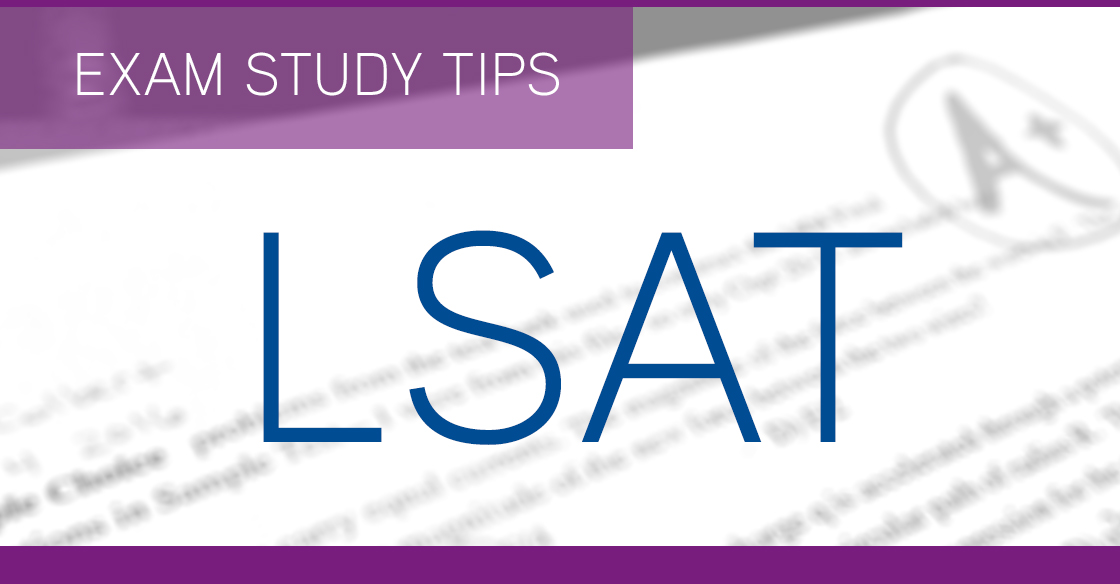The LSAT is considered to be one of the largest factors law schools take into consideration when looking over applications. At times, a lower GPA can be offset with a great LSAT score. With that said, if you’re looking to apply to law school in the near future, your study session start now.
The Law School Admission Test (LSAT) is comprised of three types of multiple-choice questions: reading comprehension, analytical reasoning, and logical reasoning. These questions will measure your critical thinking, analysis, reasoning, and above all time management.
Most law schools require LSAT scores by December for admission into the fall semester, so it is recommended that you take the test in September or October.
Keep in mind, the LSAT is nothing like the GMAT or GRE; the amount of time you put into studying is absolutely vital to your score. The test is designed so that there isn’t enough time to answer every question, so effectively preparing is your key to success.
Listen up, prospective law student; here are the five best ways you can prepare for the LSAT:
1. Assess your abilities.
Before anything else, you want to take a practice test to figure out what your strengths and weaknesses are. Find the time to sit down and go through the exam in its entirety. Yes, the exam spans the course of a half day, but knowing where you stand in your abilities is crucial to your LSAT preparation.
Looking for a full-length LSAT practice exam? Most LSAT prep books come equipped with practice tests but there are other resources where you can find a test at no cost to you. The Law School Admission Council administers a practice LSAT exam for free at www.LSAC.org. Also, Kaplan offers free examinations by going to their website, www.kaptest.com.
2. Become best friends with your LSAT prep book.
The LSAT tests you on how you think, not necessarily on what you know. An LSAT prep book will explain the different types of questions as well as the different methods to derive certain conclusions. In addition to providing sample questions, many books include practice tests based on past LSAT exams.
Preparing for the LSAT requires your focused attention, so make sure you build enough time into your daily schedule to study. Designate separate time for schoolwork, work, and the LSAT by creating a time management schedule (and make sure you follow it closely.)
Try The Official LSAT SuperPrep: The Champion of LSAT Prep by Law School Admission Council or, if you prefer to study with audio, the Princeton Review: Cracking LSAT 2014 comes with DVD and 6 practice tests.
3. Download study apps.
With your smartphone or tablet, LSAT study time can be, well, anytime. Whether you’re on the go or need a break from reading from a physical book, take advantage of interactive mobile applications. Using an app to study will force your brain to think more abstractly, improving your critical thinking and reasoning skills.
Arcadia Prep, Inc. offers a free LSAT prep mobile app. It grants you access to logic games, 100 sample questions with step-by-step explanations, a workspace with pen tools so you can draw logic diagrams and highlight passages.
Another alternative is Malyshev EduSys LLC’s LSAT app for $9.99. This paid app comes with all the features you’ll need from how to register, simulating the testing environment, to tracking your progress.
4. Get your game on.
Studies have shown that playing games can boost memory and strategic thinking. Try to incorporate LSAT-based games into your schedule to sharper your ability to think on your feet.
7Sage is one of the favorites among people studying for the LSAT. The online study guide is a comprehensive approach to teaching each section of the LSAT filled with interactive games, practice quizzes, discussion boards, and tutoring. 7Sage is free for beginners, then progresses to $179 for a more encompassing prep course.
5. Exercise your mind and body.
The LSAT is a long, stressful process. Starting from preparation and ending on the day of examination (which takes up half of a day.) You don’t want to just feel healthy mentally, but also healthy physically. Eating healthy and exercising regularly is shown to boost brainpower and increase productivity. Don’t stay cooped in your room for long periods of time, as this will make you susceptible to distraction and irritability. Add some cardio paired with healthy eating to your routine before a study session to maximize concentration.





Thanks Olivia,
i was missing 5th points. now will follow that too .
Thank you for providing us with these new details.